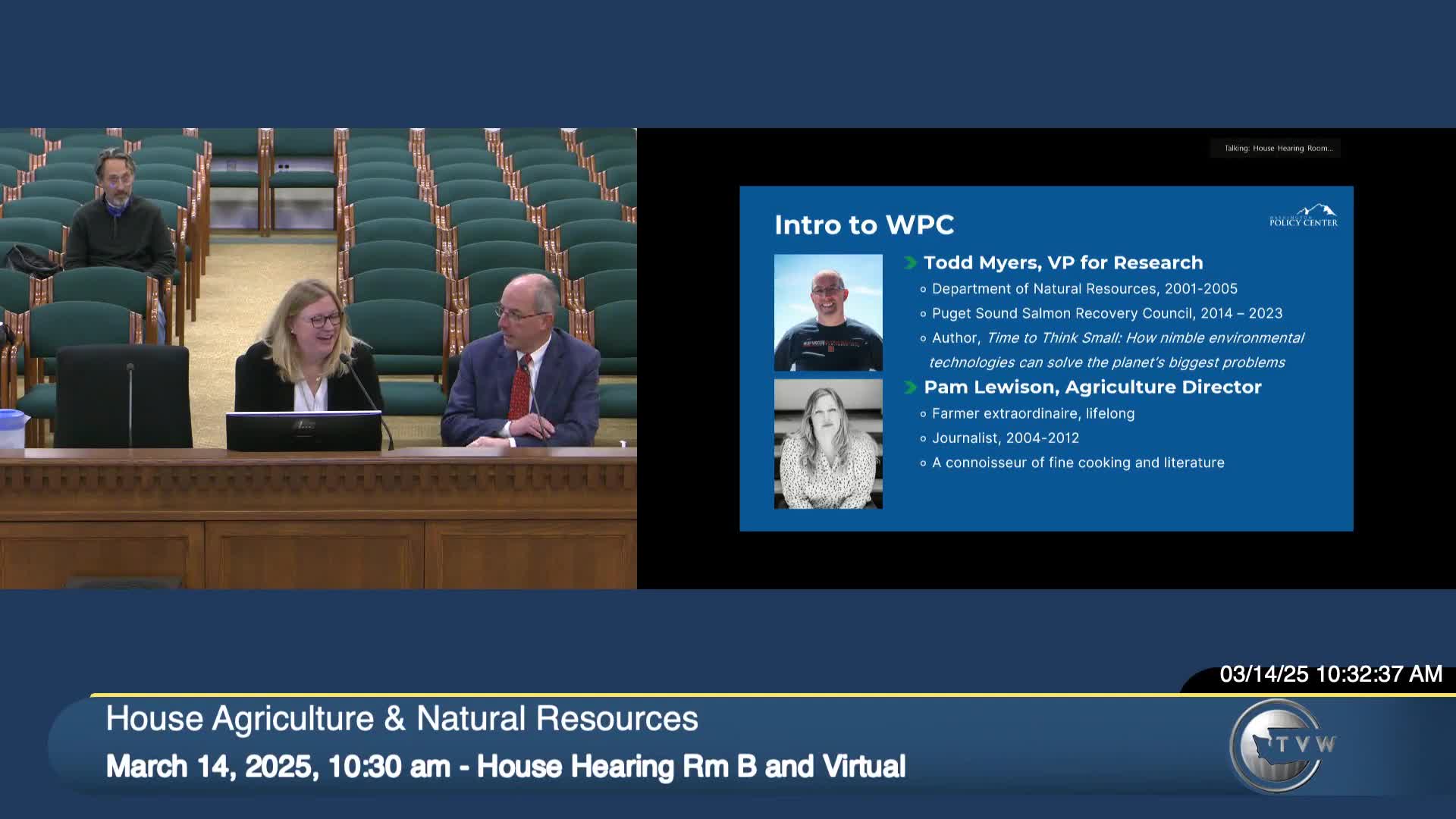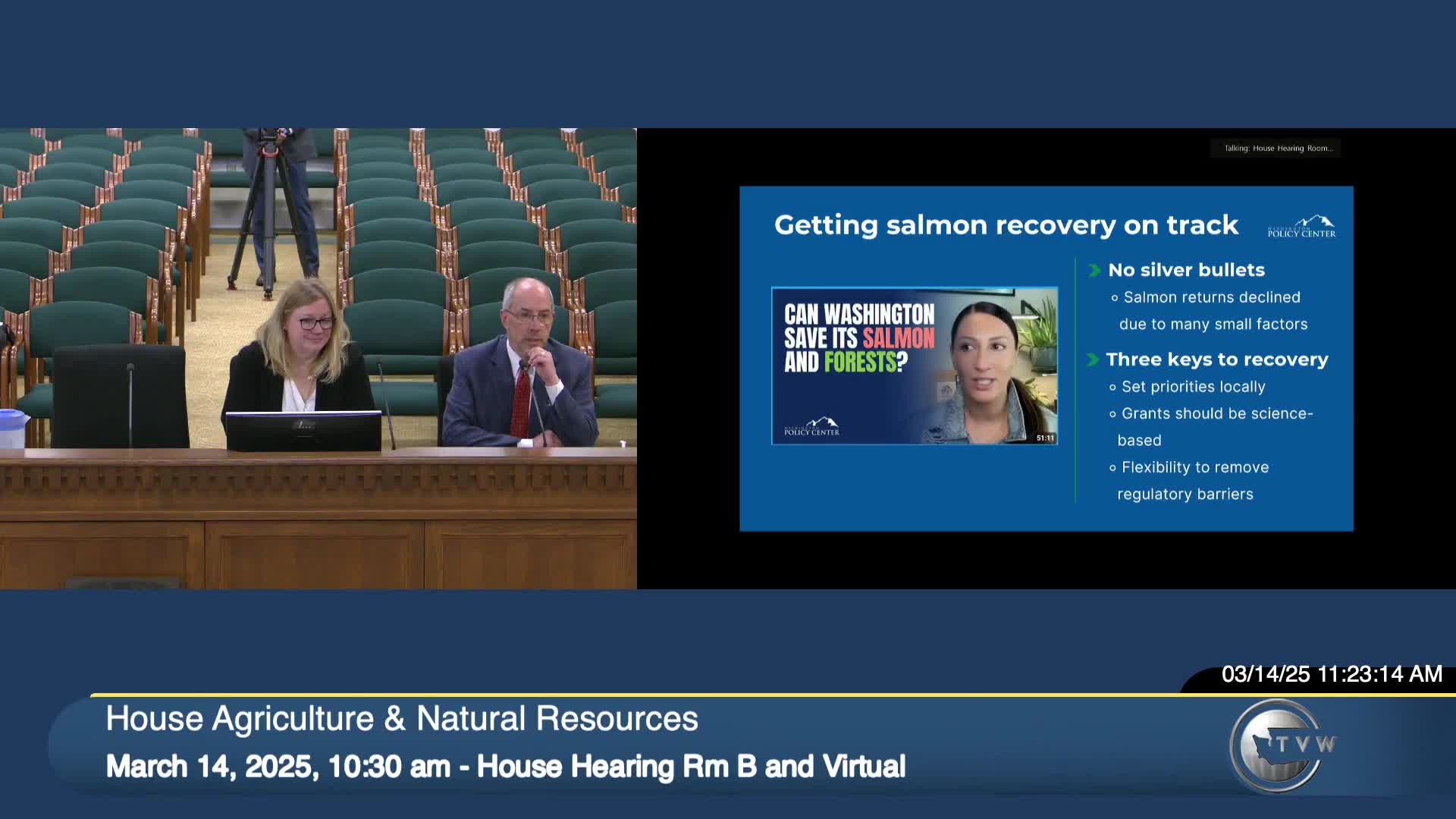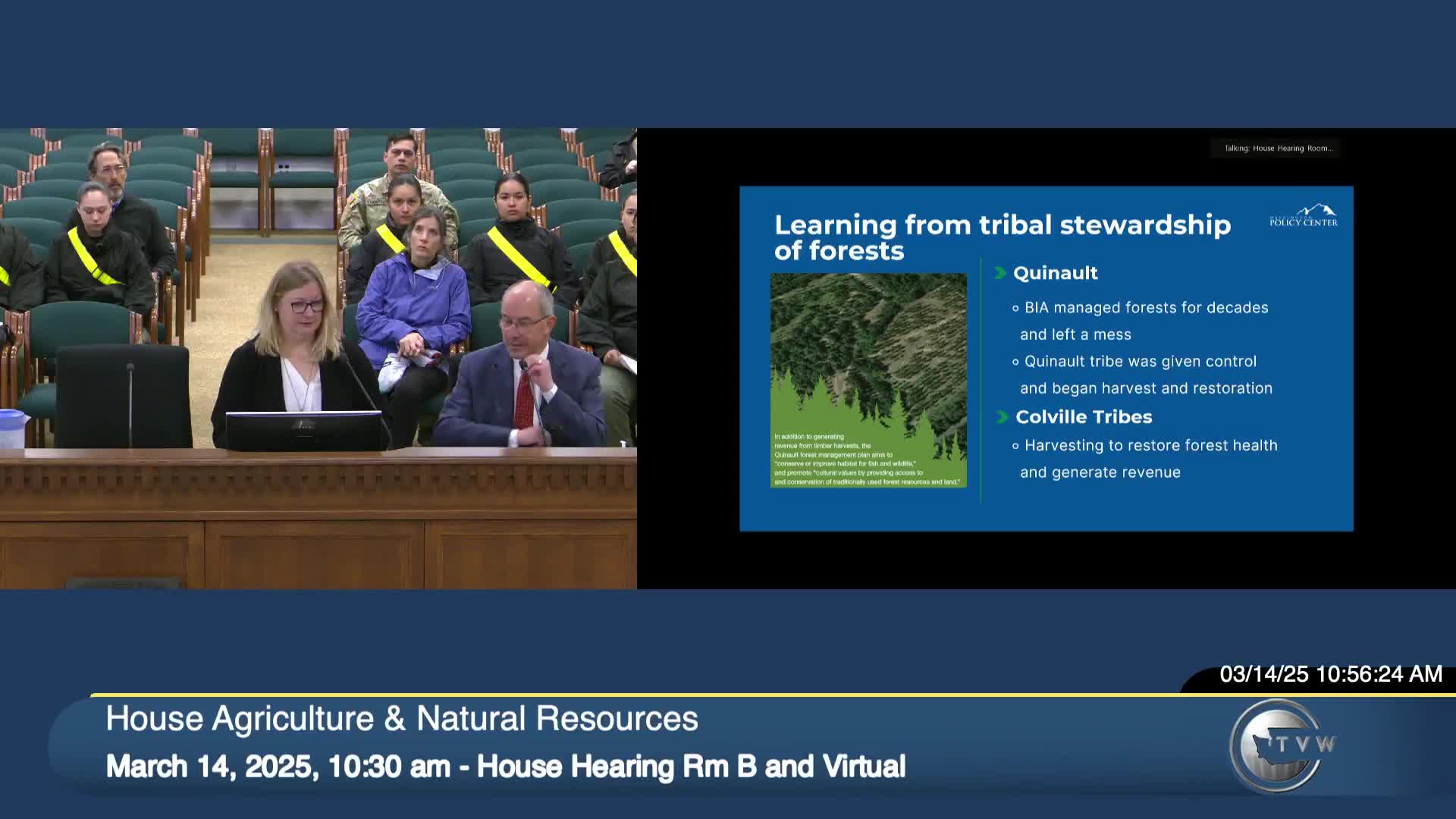Article not found
This article is no longer available. But don't worry—we've gathered other articles that discuss the same topic.

Panel to House Agriculture and Natural Resources Committee urges focus on farm sustainability, water access and food security

Panel urges local priority setting, science‑based grants and regulatory flexibility to accelerate salmon recovery

